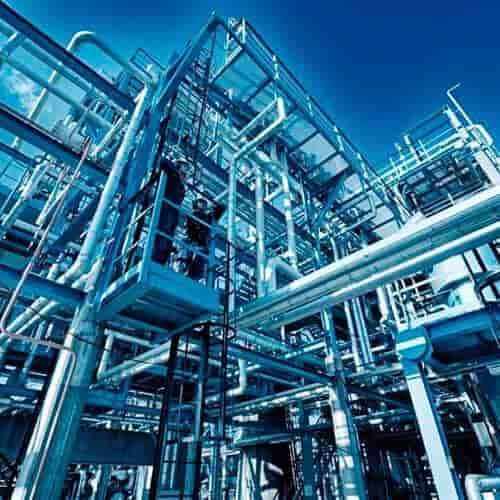Biobased packaging – The French Sphere group, a leader in compostable biobased packaging, has acquired Romagnasac, which controls Virosac and Rapid—two Italian firms specializing in flexible packaging and household products 31-10-2024
Biobased packaging
Dow and Ambipar have announced a Memorandum of Understanding (MoU) to advance plastic recycling in Brazil, combining Dow’s material science leadership with Ambipar’s expertise in environmental solutions

The French Sphere group, a leader in compostable biobased packaging, has acquired Romagnasac, which controls Virosac and Rapid—two Italian firms specializing in flexible packaging and household products
This acquisition marks Sphere’s fourth purchase in Italy, following Flexopack, Comset, and ICO.
Founded in 1973, Virosac produces both biodegradable and traditional bags for household and professional use, along with kitchen and food storage items. Rapid, bought by Virosac in 2021, manufactures freezer bags, aluminum foil, and baking paper. Located in Pederobba and Bedizzole, these companies collectively generate €65 million in revenue with an EBITDA of €9 million and employ over 150 people.
The current CEO of Romagnasac, Luigi Ferrando, along with his management team, will continue to oversee operations under Sphere’s ownership. Established in 1976, Sphere produces a broad range of products including waste bags, reusable bags, food films, aluminum trays, and disposable tableware. With 15 production sites across Europe, including two in Italy, Sphere has an annual production capacity of 235,000 tons of film and bags. In its last financial year, Sphere recorded nearly €800 million in sales and employs over 1,600 people. Sphere’s portfolio also includes Biotec, which produces bioplastics with a 60,000-ton capacity annually.

Versalis Chemicals Restructuring
Versalis, a subsidiary of the ENI group, is undergoing a significant transformation as part of a restructuring plan aimed at addressing ongoing losses and the challenging landscape of the European chemicals industry. Announced during the recent financial results presentation, the plan includes substantial changes to Versalis’s assets and portfolio.
Francesco Gattei, Chief Transition & Financial Officer of ENI, noted that Versalis has faced considerable financial setbacks, which have persisted into 2024. To counter this trend, the restructuring involves closing several petrochemical plants and investing €2 billion over the next five years. Biobased packaging
The investment will focus on polymer specialties, biochemistry, and circular economy initiatives, particularly in mechanical and chemical recycling.
The goal is to achieve a positive EBIT by 2027 and cash flow breakeven by 2028. Gattei emphasized that this transformation would utilize the skills of a highly qualified workforce, enhancing sustainability and value.
Key components of the plan include major changes at the Priolo, Brindisi, and Ragusa sites. The Priolo cracker will be replaced by a biorefinery for sustainable jet fuel and a chemical recycling facility using proprietary HOOP technology. In Brindisi, the cracker will close, but polyolefin synthesis will continue through market raw material purchases. Additionally, polyethylene production in Ragusa will cease, with future capacity reductions possible. Biobased packaging

The Bacolod City government recently launched a PET bottle recycling initiative during the MassKara Festival, collecting 445,455 PET bottles between October 11 and 27
This pilot campaign was a collaborative effort among the Bureau of Environment and Natural Resources (BENRO), Coca-Cola Philippines, Bacolod Yuhum Foundation Inc., and Basic Environmental Systems and Technologies Inc. Through their combined efforts, over 8 tonnes of PET waste were reclaimed for recycling, advancing the city’s circular economy.
Mayor Alfredo Abelardo Benitez emphasized the initiative’s goal of promoting responsible waste disposal and environmental awareness among residents and festival attendees. BENRO head Maria Fe Trespuentes noted this was the first large-scale PET collection effort led by the city as part of the MassKara Festival and a pioneering initiative by any local government in the region to manage PET waste during a public event. Biobased packagin
The campaign involved distributing 169 PET disposal bins citywide, supported by 108 concessionaires, with active participation from street sweepers and informal settlers across 21 villages, demonstrating a strong community commitment to environmental stewardship.

China Energy Group Ningxia Coal selects LyondellBasell Hostalen ACP technology
LyondellBasell the world’s largest licensor of polyolefin technologies, today announced China Energy Group Ningxia Coal Industry Co., Ltd. (China Energy Group Ningxia Coal) has selected LYB Hostalen Advanced Cascade Process (Hostalen ACP) technology for a 300 kiloton (kt) per year high density polyethylene (HDPE) plant.
The new facility will be built at Yinchuan City, Ningxia Hui Autonomous Region, China.
“China Energy Group Ningxia Coal selection of our technology reaffirms LYB credibility in the polyethylene market,” said Patrik Schneider, senior director global licensing & services at LYB. “Further, with this license, the global nameplate capacity of Hostalen ACP will exceed 13 million tons per year, which demonstrates the success of this leading technology.” Biobased packagin
“The selection of the Hostalen ACP low-pressure slurry process technology was key to us as in the current market environment the production capability is key to differentiate in the market,” said Mr.Zhou Jiliang, senior project manager of China Energy Group Ningxia Coal. “The Hostalen ACP process technology and related Ziegler catalyst chemistry allows us best to deliver on that demanding goal.”.


